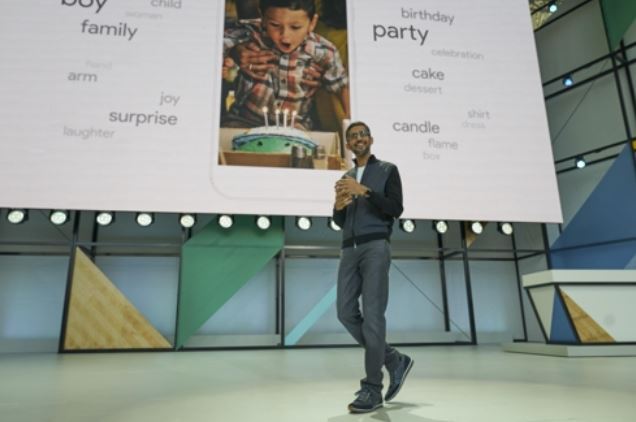Google Inc. aims to make artificial intelligence technology more available so it can benefit everyone, the company's engineers said Tuesday.
"Our goals are to make Google products more useful, help businesses and developers innovate, and provide researchers with tools to tackle humanity's big challenges," Jeff Dean, head of the Google Brain Team, told reporters.
The remarks were made during an annual conference held in Tokyo for the Asia-Pacific region to publicize the team's outcome and to give a glimpse of the future.
Google Brain, which is responsible for many AI products, is dedicated to experimenting with new and different forms of machine learning to make computers smarter. Machine learning is a style of computer science that believes that programming a computer to learn to be smart may be easier than directly programming it to be smart.
The engineer said four key things -- classification, prediction, understanding and generation -- are based on machine learning, and they are used in almost all Google's products, like Google Translate and Google Photos.
 |
(Yonhap) |
"Machine learning is a new way of creating a problem-solving system," he said, noting that the company aims to share Google's tools with people around the world.
Pravir Gupta, an engineering director, said Google Assistant is built on Google's long experience in machine learning, natural language processing and searches.
"With the Google Assistant, you can have a natural conversation with Google to get things done ?- from getting answers to questions to navigating around, to hearing the news or getting help with your schedule," he said.
Linne Ha, director of research programs, said the AI technology is helping to build computers that can hear and speak by teaching machines to learn languages.
Google is working to solve the language imbalance as Google aims to make information universally accessible and useful.
"Fifty percyent of the web is in English," she said. "The team aims to go beyond English."
The team currently is working on "Project Unison," which is an experiment to use machine learning to build text-to-speech engines, so that machines can capture the words of a person speaking in less-spoken languages like Bengali, Khmer and Javanese.
Kaz Sato, a developer who advocates cloud platforming, said Google also aims to use machine learning for businesses, such as providing developers with tools to innovate.
Google also said machine learning can help tackle some of humanity's big challenges like health care, energy and environmental protection.
"Our team is working with hospitals in India, Thailand and the United States to develop a tool that can help diagnose diabetic eye disease with machine learning," said Lily Peng, product manager of the medical imaging team.
The algorithm's accuracy is on par with doctors and will help in places with a shortage of eye doctors, she said. (Yonhap)





![[Exclusive] Hyundai Mobis eyes closer ties with BYD](http://res.heraldm.com/phpwas/restmb_idxmake.php?idx=644&simg=/content/image/2024/11/25/20241125050044_0.jpg)
![[Herald Review] 'Gangnam B-Side' combines social realism with masterful suspense, performance](http://res.heraldm.com/phpwas/restmb_idxmake.php?idx=644&simg=/content/image/2024/11/25/20241125050072_0.jpg)

